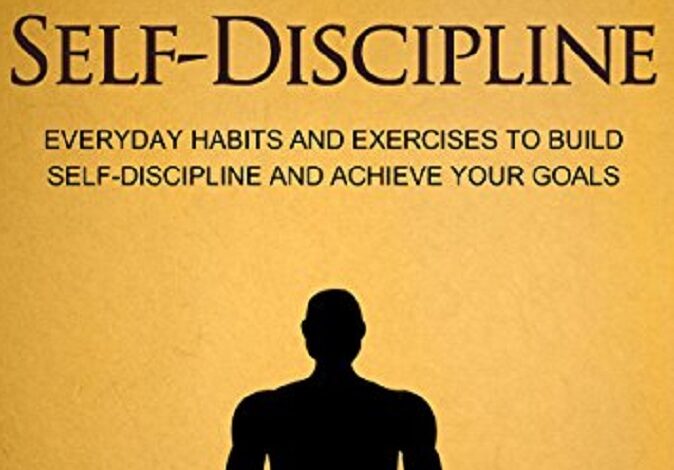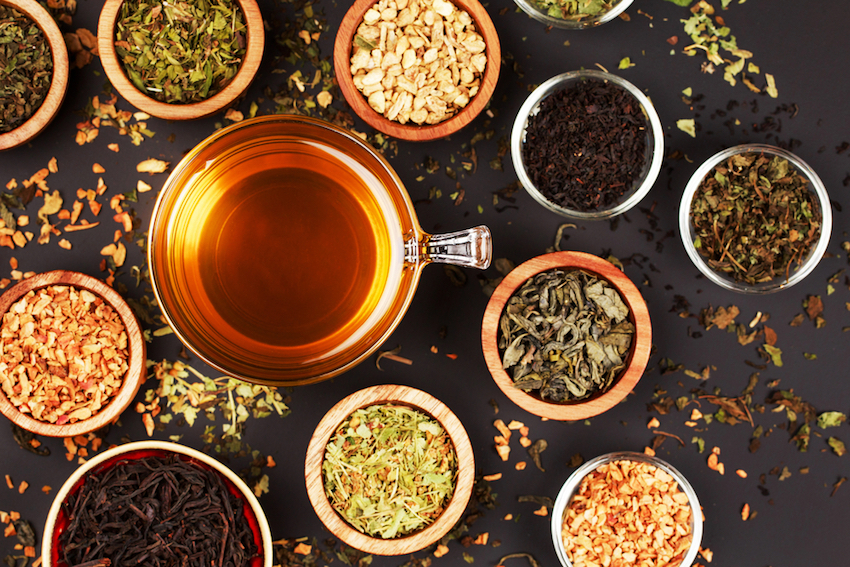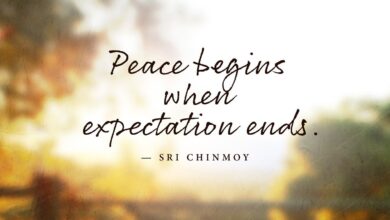
Day 1: On Living the Hard Way
Life’s easy when you live it the hard way… and hard if you try to live it the easy way.
—Dave Kekich
Self-discipline means living your life the hard way: resisting temptations and instant gratification, in order to receive bigger and better rewards in the future. It’s certainly easier to avoid all kinds of discomfort and indulge yourself whenever you want, but in the end, all that you get from that approach is fleeting pleasure now at the expense of your future, which otherwise could have been much better.
Consider a weak-willed person who, when faced with a challenge, immediately opts out. How likely is this person to achieve anything substantial in life if their primary value is to feel comfortable? How is this person going to manage a crisis that they must face? Even a relatively insignificant problem can become an insurmountable obstacle for a person who’s been living a sheltered life and always avoided what’s difficult or disagreeable.
Now contrast that with a person who voluntarily makes his or her life harder. They seek out and welcome challenges as opportunities to grow. Each self-imposed affliction strengthens them, so that fewer and fewer difficulties in life overwhelm them. Day by day, they immunize themselves against problems, precisely because they seek them out. When life deals them an unexpected blow, they’re ready to handle it because — thanks to living their lives the hard way
— they’re always ready for hardships.
Day 2: On Your Choices
Your choices are made in a moment, but their consequences will transcend a lifetime.
—MJ DeMarco
Eat this greasy, high-calorie hamburger or prepare a healthy salad? Sleep in and barely get to work on time or wake up at 5 a.m. to work on your side business before going to work at your day job? Stop trying the moment you get rejected or swallow your pride and keep going, despite hearing “no” dozens of times?
It takes only a moment to make the wrong choice and jeopardize your future. What feels like an insignificant decision today can have a great, lasting impact on your future. Each choice sets a precedent — and when you make the same wrong choice several times in a row, it becomes your standard modus operandi . While one hamburger every now and then isn’t likely to ruin your overall efforts to lose weight, underestimating the impact of repeatedly making the wrong choice can profoundly affect you over the course of the rest of your life.
Each time you’re faced with a decision between exerting self-discipline and taking it easy, remind yourself that the choice you’re making today doesn’t affect the present moment alone. A momentary decision can (and often will) reverberate for many years or even decades into the future.
Day 3: On Being a Human
Willpower is what separates us from the animals. It’s the capacity to restrain our impulses, resist temptation — do what’s right and good for us in the long run, not what we want to do right now. It’s central, in fact, to civilization.
—Roy Baumeister
Humans have the capacity to act against their urges in exchange for a better future. Unfortunately, many people live by the principle of “if it feels good, do it, and if it doesn’t, don’t do it.”
Caving in to your temptations whenever you feel them emerge is like relinquishing your humanity, in a way. As an intelligent human being, you have an ability — and I daresay an obligation — to make decisions that are based on rational thinking, not on your instincts alone.
Strive to be a better human and embrace your humanity by exercising your “willpower muscle,” instead of succumbing to your most primal (and least helpful for your long-term goals) part of the brain. Your most primal instincts may provide temporary comfort, but seldom are good for the long term, except when there is a direct threat to your survival.
Day 4: On Creating Systems
I value self-discipline, but creating systems that make it next to impossible to misbehave is more reliable than self-control.
—Tim Ferriss
A lot of people think that being self-disciplined means that you can sit in front of a delicious piece of cake and stare at it for hours without eating it. They think of resisting temptations as being like a knight defending his kingdom against the invader.
If you go to seedy bars every week, your chances of getting punched in the face are higher than those of a person spending their evenings at home with a book. Likewise, the best way to protect yourself against temptations is to avoid them — and for that, plain old preparation is more valuable than self-control.
Your chances of cheating on a diet are higher if you have forbidden foods at home. Removing them from your house — a simple act that requires little willpower, as long as you’re satiated while doing so — will protect you when you get hungry and the urge to gorge on them hits you like a ton of bricks.
Your chances of sleeping in are lower if you set three different alarms and place them away from your bed.
You’ll be less likely to waste time at work when you block the most distracting websites instead of relying on your willpower to stop you before loading those funny cat pictures.
Prepare yourself for difficult situations by putting up roadblocks ahead of time, when your resolve isn’t being tested. Your self- control system will do some of the heavy lifting for you, leaving your reserves of self-discipline to be used for the unplanned situations, when they arise.
Day 5: On Enslavement to Self
Before complaining that you are a slave to another, be sure that you are not a slave to self. Look within; you will find there, perchance, slavish thoughts, slavish desires, and in your daily life and conduct slavish habits. Conquer these; cease to be a slave to self, and no man will have the power to enslave you.
It’s easy to delegate the responsibility for our lives and choices to other people.
—James Allen
It’s not your fault that you can’t stick to a diet — it’s because your friends constantly tempt you to grab something to eat with them.
It’s not your fault that you can’t control your finances — it’s those evil corporations that spend millions on advertising and leave you powerless to change.
It’s not that you lack willpower to exercise — people always want something from you and you never have the time to develop this healthy habit.
In reality, nothing could be further from the truth. While external circumstances can affect you, in the end, whether or not they control your life depends on you. Just like James Allen said, when you achieve self-mastery, no one (and no thing) will have the power to enslave you.
The next time you blame an external factor for your lack of self-discipline, think again. Was it the person eating chocolate next to you who controlled what you put in your mouth, or was it you?
Day 6: On Superhumans
Life can be much broader once you discover one simple fact: Everything around you that you call life was made up by people that were no smarter than you and you can change it, you can influence it, you can build your own things that other people can use.
—Steve Jobs
Despite an enormous selection of movies about superhumans, they don’t really exist. I know, it’s shocking news, right?
Nobody — including the world’s biggest geniuses — was, is, or ever will be a superhuman, infinitely better in all aspects than the average mortal.
It’s easy to forget this fact when you look at the accomplishments of the people who are changing the world around you. After all, they appear to be so perfect — extremely productive, intelligent, beautiful, creative, persistent, strong… and the list goes on.
Behind the scenes, everyone struggles in some areas of their lives.
I’m an author of several books about self-discipline, but it doesn’t mean that I never struggle with self-control. I deal with the same problems as every other person, and the only difference is that I’ve discovered how to handle some of them a bit more effectively. I’ve had my fair share of failures, found myself unable to resist some temptations, and I jeopardized some long-term goals because I succumbed to the allure of instant gratification .
This is the human condition. People whom you consider to be extremely successful aren’t that different from you. Many of them in the past had less willpower than you exhibit now, and many of them might be more disciplined than you in one aspect, but less disciplined in another.
Becoming a self-disciplined person is within everybody’s grasp. You don’t need to have won the genetic lottery or get introduced to a country club to develop self-control — and neither you nor anybody else will ever achieve permanent, flawless self-mastery over every aspect of life. Accept that and accept yourself, as well.
Day 7: On Poverty and Self-Discipline
A second line of research has shown that economic stress robs us of cognitive bandwidth. Worrying about bills, food or other problems, leaves less capacity to think ahead or to exert self- discipline. So, poverty imposes a mental tax.
—Nicholas Kristof
Financial stress (or for that matter, all kinds of stress) diminishes your ability to delay gratification. Consequently, poor people find it harder to resist temptations. In the end, they get stuck in a vicious cycle — they can’t escape poverty because it imposes constant mental stress on them, which then leads them to making bad decisions — not only the financial ones, but also those relating to their health, relationships, and general future.
Does it mean that if you’re struggling financially, you’re destined to have a bad life? Not necessarily. Taking personal responsibility and becoming conscious of the source of the problem can help you push ahead and overcome your circumstances.
Launching one of my businesses put me in debt. It exerted immense daily stress on me. No matter what I was doing, there was always the thought in the back of my head that I had a debt to repay. In some months, I was so close to not meeting my obligations on time that I would have been forced to close up shop if it weren’t for some money I managed to make at the last minute .
This experience has made me realize that no matter what they say about money not bringing happiness, at least several months’ worth of income kept as savings in the bank means the difference between a relatively stress-free life and the soul-crushing fear when you can’t cover an urgent, important expense.
If you’re struggling with finances, make it one of your priorities to get out of debt as quickly as you can and build an emergency fund covering at least three to six months of basic living expenses. In addition to improving your financial health, it will dramatically reduce stress and strengthen your ability to delay gratification and make more optimal choices favoring your future.







